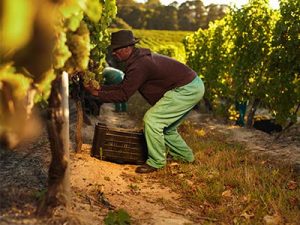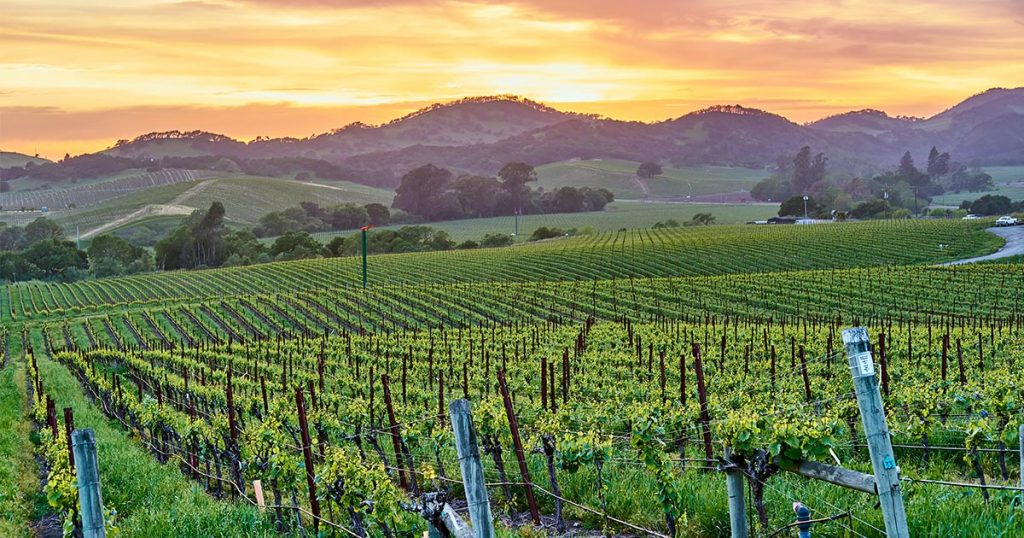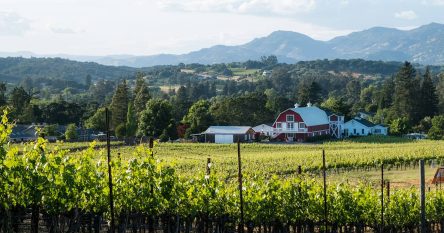The Sonoma County wine community is celebrating a milestone achievement as 99% of the county’s wineries have been certified sustainable. The announcement by Karissa Kruse and Glenn Proctor of Sonoma County Winegrowers is the culmination of a five-year program to increase sustainability in the region.
The next step for these industry veterans? Becoming part of a pilot certification program called Climate Adaptation Certification. This new initiative, beginning in 2020, will help farmers track carbon sequestration and greenhouse gas emissions to help mitigate the effects of climate change.
Sonoma County Grapes and Sustainability Practices

When Sonoma County Winegrowers announced their push for sustainability five years ago, they were met with some resistance. Certification programs cost money, both for implementation and certification. In addition, some Sonoma grape growers were worried that seeking sustainability would cause them to have to change their practices in ways for which they were unprepared.
However, according to Kruse, adoption became more prevalent as vineyards sought to include sustainability labeling on their bottles. Suddenly, growers saw an economic and marketing benefit to the push for sustainability.
While some growers initially balked at what they feared would be too much regulatory interference, many found that sustainable practices were often much easier to implement than they initially believed. Some simple practices like the installation of owl boxes to encourage owl populations for natural rodent control were quick, easy, and inexpensive to implement.
Sonoma County wine grape farmers had options when choosing which sustainability program to participate in. Sonoma County Winegrowers recognizes The California Sustainable Winegrowing Alliance, Fish Friendly Farming, Sustainability in Practice, and Lodi Rules as sufficiently rigorous programs for their certification standards. Any vineyard owner with a certification from one of the four organizations became eligible to use the “Sonoma County Sustainably Farmed Grapes” designation on vineyard signage and, starting in 2018, on bottle labeling.
The Next Step: Climate Adaptation Certification
Napa-based Fish Friendly Farming is the certification program that Sonoma County Winegrowers will be working with to implement the Climate Adaptation Certification program. The organization, developed by the California Land Stewardship Institute, created the certification program to use vines, soils, trees, and shrubs to boost carbon sequestration, ultimately reducing greenhouse gas emissions.

Carbon sequestration programs seek to partner with a variety of agricultural communities to better use crops and plantings to capture emissions from the air and drive them into the ground through the root systems of the plants. This helps to prevent chemicals like carbon dioxide, nitrous oxide, and methane from moving into the upper atmosphere and contributing to climate change.
In order to improve carbon sequestration by Sonoma County grape growers, the group will help farmers implement practices like tillage reduction and the planting of cover crops and grass filter strips. In addition, the group will evaluate fertilizer use in an effort to reduce nitrous oxide emissions.
Agriculture produces only eight percent greenhouse gas emissions in the state, so the focus will be on carbon capture more than emissions reduction. Trees planted near vineyards, for example, can help offset greenhouse gas emissions from other sources like the transportation, energy, and manufacturing industries which are far more polluting.
Certification in the new program will not involve a blanket adherence to a set of one-size-fits-all rules. The Climate Adaptation Certification involves a farm-by-farm assessment of current practices in order to develop a set of improved best practices customized to the individual farm.
For example, a farmer might be asked to make changes to his or her current practice in regards to tilling, composting, irrigation, or soil management. This way, farms are rewarded for things they’re already doing well while improving those practices that can help the environment in other ways.
Sonoma County Grapes: Sustainable vs. Organic
Although some people hear “sustainable” and assume that it means organic, the two are not synonymous. Only about 3% of Sonoma County’s vineyards are certified organic. Organic farming forbids the use of synthetic chemicals, while sustainable farming is designed to provide more flexibility.
The focus, according to Sonoma County Winegrowers’ Proctor, is on the long-term health and viability of the land for growing grapes in Sonoma County. He views sustainability practices as “a way to maintain agriculture in Sonoma County for generations to come.”
Napa Valley Sustainability Practices
The Napa Valley, of course, has its own sustainability and environmental practices program in place. Napa Green seeks to help Napa Valley grape growers to meet and exceed comprehensive and stringent environmental regulations in order to protect and restore the environment throughout the Napa Valley.
As of their 2019 report, 60% of Napa Valley vineyard acreage has been certified Napa Green land, and more than 20 miles of waterways have been restored through conservation efforts. With more than 80 Napa Green certified wineries, the program represents 40% of the certified sustainable wineries in the entire state.
Nearly 50 Napa Green wineries are certified sustainable from soil to bottle, meaning that they follow best practices not only in their growing process, but throughout the manufacturing process as well.
Sustainability and Market Value
One of the benefits of sustainability certifications for grape growers in the region is the economic boost it gives to their property and their brand. The ability to market a property that has already achieved certification provides an additional incentive in the event of a land sale. In addition, when the whole region is known for cutting edge practices and management, it makes each of the farms in the region more marketable.
For buyers in the area, the ability to purchase a property that has already implemented sustainable practices and paid for the certification process creates a value-added benefit and helps to increase the marketability of the grapes grown there. It also offers additional branding benefits due to the labeling incentive.
If you are looking for a Sonoma vineyard or winery for sale or to list one, I am here with the information and market expertise you are looking for to handle this type of transaction. Because I am a luxury and wine property specialist, I can help you ask the right questions, evaluate the suitability, or prepare the property, for your individual goals.




